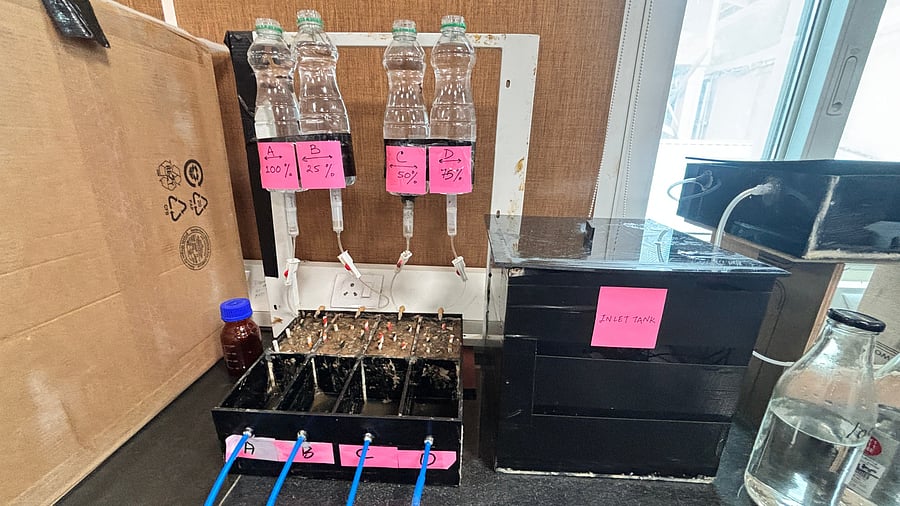
The Phenol Eating Bacteria (PEB) research project.
Credit: ECOSTP Technologies
Researchers from IIT Jammu, in collaboration with Bengaluru-based startup ECOSTP Technologies, have developed a novel strain of bacteria capable of breaking down surfactants and phenols in wastewater.
Surfactants from soaps and phenols from disinfectants have increased in wastewater due to the pandemic.
According to the UN, 80 per cent of wastewater globally returns to the ecosystem untreated, posing health risks to 1.8 billion people.
To address this issue, Prof Pratik Kumar and his PhD student, Qamaruz Zaman Khaki, at IIT Jammu, identified a strain they call Phenol Eating Bacteria (PEB). These bacteria are designed to degrade phenols and surfactants that conventional sewage treatment plants cannot process. Micro-organisms like filamentous fungi, yeasts, and bacteria can use phenols as a source of carbon and energy.
ECOSTP Technologies, which specialises in sustainable wastewater management, has partnered with IIT Jammu on this R&D initiative, which combines intellectual property and commercialisation efforts. The goal is to create innovative, cost-effective solutions for wastewater treatment with a strong emphasis on ecological sustainability.
Underscoring the urgent need for sustainable wastewater solutions, ECOSTP CEO Tharun Kumar told DH: “India faces severe water scarcity, worsened by rapid urban growth, industrialisation, and climate change. Traditional wastewater treatment plants are often energy-intensive, costly and involve complex infrastructure, making them less feasible for widespread use.
“We address this issue by developing wastewater treatment systems based on biomimicry, which treat sewage using natural bacteria without energy or chemicals. This makes them suitable for low-income areas in Bengaluru and other urban regions across India.
“By partnering with IIT Jammu, we’re leveraging advanced academic research to enhance these eco-friendly solutions,” he added.
Researchers said PEBs have shown promising results in laboratory settings, though practical testing is still required. The project also aims to secure intellectual property rights, with gene modification options being explored for these bacteria.